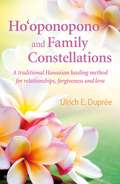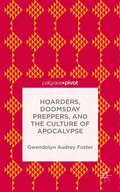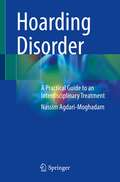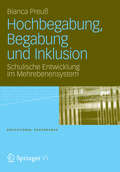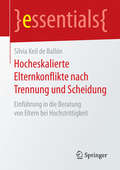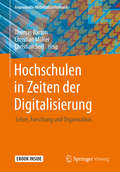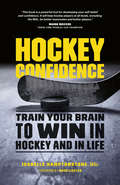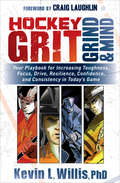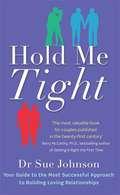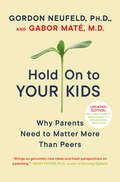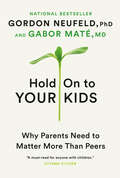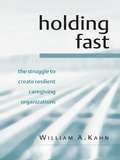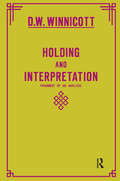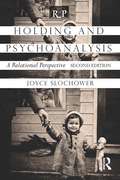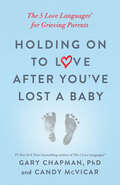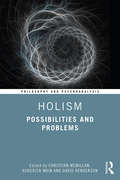- Table View
- List View
Ho'oponopono and Family Constellations: A traditional Hawaiian healing method for relationships, forgiveness and love
by Ulrich E. DupréeTake a moment to think hard about your relationships. The first one to come to mind may be with your partner or parents but there are many others in your life: relationships with your colleagues at work, your body, your past and future, your finances, even with the clutter still left in your closets. Many problems are relationship-related, and the good news is that you can heal all your relationship issues! With his best-selling title "Ho’oponopono", Ulrich Emil Duprée revealed a healing method for solving problems and conflicts by using the Hawaiian reconciliation ritual to forgive both ourselves and others. This is given even greater power when combined with the method of systemic family constellations. A constellation allows underlying conflicts to be aired and resolved. It helps us to experience love and inner peace through the feeling, deep in our hearts, that we are all interconnected.
Hoarders, Doomsday Preppers, and the Culture of Apocalypse
by Gwendolyn Audrey FosterThe culture of twenty-first century America revolves around narcissistic death, violence, and visions of doom. Foster explores this culture of the apocalypse, from hoarding and gluttony to visions of the post-apocalyptic world.
Hoarding Disorder: A Practical Guide to an Interdisciplinary Treatment
by Nassim Agdari-MoghadamThis book offers in-depth information on pathological hoarding, describing both the root of the disorder and its progression. How can hoarding disorder be diagnosed? What are the challenges involved in treatment? How can professionals best deal with those affected? In this practical guide, health professionals will find the answers to these and many other questions.In the last few years the awareness of this disorder has gradually increased – not only in the academic community, but also in the media – and it has become clear that there are a considerable number of people worldwide who continue to suffer from it. The case studies presented here share essential insights into the diverse backgrounds and lives of affected individuals. In addition, hoarding disorder has since been classified as a new mental disorder by the WHO, which means many psychoanalysts, psychologists, psychiatrists and social workers will need to be trained accordingly. This book offers valuable guidance.
Hoax Springs Eternal
by Peter HancockUnlike sleights of hand, which fool the senses, sleights of mind challenge cognition. This book defines and explains cognitive deception and explores six prominent potential historical instances of it: the Cross of King Arthur, Drake's Plate of Brass, the Kensington Runestone, the Vinland Map, the Piltdown Man, and the Shroud of Turin. In spite of evidence contradicting their alleged origins, their stories continue to persuade many of their authenticity. Peter Hancock uses these purported hoaxes as case studies to develop and demonstrate fundamental principles of cognitive psychology. By dissecting each ostensible artifact, he illustrates how hoaxes can deceive us and offers us defenses against them. This book further examines how and why we allow others to deceive us and how and why we even deceive ourselves at times. Accessible to beginner and expert alike, Hoax Springs Eternal provides an essential interdisciplinary guide to cognitive deception.
Hochbegabung, Begabung und Inklusion
by Bianca Elke PreußHochbegabung wird vielfach als pädagogisches Phänomen betrachtet, weniger als Gegenstand empirischer Bildungsforschung.Vor dem Hintergrund von Schulentwicklungsprozessen in schulischen Netzwerken wird in dieser Studie ein solcher Ansatz gesucht. Als empirisches Fallbeispiel dienen die Kooperationen "Hochbegabung fördern" in Niedersachsen, die seit 2003 als flächendeckendes, bildungspolitisches Konzept zur bildungsgerechten und durchlässigen Entwicklung von Begabungen eingeführt wurden. Über den Ansatz der Educational-Governance-Forschung wird auf Basis qualitativer Daten gezeigt, welchen Beitrag die Leitidee 'Hochbegabungsförderung' perspektivisch für Inklusion leistet und wie sich in diesem Kontext produktive Schulentwicklung auf den verschiedenen Steuerungsebenen von Schulverwaltung und Schule realisiert.
Hocheskalierte Elternkonflikte nach Trennung und Scheidung: Einführung in die Beratung von Eltern bei Hochstrittigkeit (essentials)
by Silvia Keil de BallónDas vorliegende essential ist ein Praxisbuch, das in kurzer, prägnanter Form wesentliche Grundlagen und Eckpunkte der Beratung mit hochstrittigen Eltern und Familien beschreibt. Es werden die Ursachen zur Entstehung von hochkonflikthaften Nachtrennungsfamilien beleuchtet, um ein Verständnis für die emotionale Verfassung der beteiligten Familienmitglieder zu ermöglichen. Der Blickwinkel ist dabei systemisch orientiert und bezieht die Herausforderungen aus verschiedenen familiären Rollenperspektiven mit ein. Weiterhin werden begünstigende Rahmenbedingungen für Beratung sowie Interventionsmöglichkeiten für Eltern und Kinder vorgestellt.
Hochschulen in Zeiten der Digitalisierung: Lehre, Forschung und Organisation (Angewandte Wirtschaftsinformatik)
by Thomas Barton Christian Müller Christian SeelDigitalisierung für Hochschulen – Dieses Buch zeigt, wie es gehtIn diesem Buch erfahren Sie alles zu Digitalisierungsprozessen an Hochschulen und Universitäten. Die Autoren erläutern die Herausforderungen für Lehre, Forschung und die interne Organisation und präsentieren ihre Lösungen zu: Digitalisierung von HochschulprozessenDigitalisierung des Studiums (der Forschung, Lehre und des Lernens)Informationssysteme an HochschulenAnwendungsszenarienDas Buch richtet sich in erster Linie an Führungskräfte und Lehrende im Hochschulbetrieb, aber ebenso an Projektleiter, Projektmitarbeiter und interessierte Studierende.Universität 4.0: Lernen Sie in diesem Buch neue Digitalisierungsstrategien für HochschulenDank vieler Beispiele und praxisnahen Anwendungen vermittelt Ihnen dieses Buch ein Gefühl für die Problematik und stellt verschiedene Digitalisierungskonzepte vor, welche die digitale Lehre in Hochschulen positiv beeinflussen können. Werfen Sie gemeinsam mit Prof. Dr. Thomas Barton, Prof. Dr. Christian Müller und Prof. Dr. Christian Seel einen Blick auf die vielfältigen Einsatzgebiete der Digitalisierung, wie: elektronische PrüfungeneLearning (u. a. MOOCs)die digitale Abgabe von Hausarbeitender Einsatz von Podcastselektronische AbstimmungssystemeAugmented RealityDas Buch zeigt Ihnen, dass die Digitalisierung gleichermaßen Auswirkungen auf das Hochschulmanagement und die Wissenschaft hat, wie etwa die Forschung und die dazugehörigen Forschungsprozesse.
Hockey Confidence: Train Your Brain to Win in Hockey and in Life
by Isabelle Hamptonstone MSc.Confidence affects how we deal with stress and how we fulfill our potential to achieve the results we desire. In sports and in life, confidence is the underlying factor determining mental and physical performance, leading to overall success. This book by experienced mental performance specialist Isabelle Hamptonstone contains a collection of powerful techniques and tips to help hockey players overcome lack of confidence.Clear instructions and illustrative case studies show how training the brain to develop and sustain hockey confidence can upgrade results and help players make smarter, quicker decisions under pressure. Hamptonstone shares step-by-step guidelines gleaned from her years of research working with the giants in the game of hockey. Some of the greatest hockey players in the world have used these very same steps to change their game and their lives. Added to this base of personal knowledge, the book references inspiring moments of mental performance by Wayne Gretzky, Doug Lidster, Scott Niedermayer, Shane Doan, Darryl Sydor, Jarome Iginla, and Mark Recchi. This pragmatic and positive book is a game-changing guide and valuable resource for anyone interested in high-performance hockey, as well as a valuable tool for self-development.
Hockey Grit, Grind & Mind: Your Playbook for Increasing Toughness, Focus, Drive, Resilience, Confidence, and Consistency in Today's Game
by Kevin L. WillisIf you&’re serious about becoming an elite hockey player, this guide will help you reach your full potential. Hockey is a tough sport. Not everyone will develop the passion and perseverance it requires. But for those who are dedicated to becoming the best, honing one&’s skills, experience, and mental toughness is essential. In Hockey Grit, Grind & Mind, sports specialist Kevin L. Willis helps players, coaches, and parents understand what it takes to play hockey at the highest levels. Here, you will learn how to increase the consistency of their game, step up in pressure situations, play with more confidence, create a reserve of energy to tap into when needed, and persevere when other players are giving up. Willis also offers practical tips on how to develop your personal vision of success and stand out on the ice in both games and practices. Hockey Grit, Grind & Mind provides the tools, insights, and strategies to help players train and compete like the pros and take their game—and their grit—to a new level.
Hoffen und die Lust zu leben: Wie wir in der Ausrichtung auf Gesundheit und Glück Energie und Kraft finden
by Klaus-D. HüllemannIn diesem Buch lädt der Arzt und Psychotherapeut Professor Hüllemann ein, bei körperlichen, seelischen Krisen wie auch bei Alltagsfrust das Hoffen als Ressource zu entdecken und zu nutzen. Er wirbt dafür, den Affekt des Hoffens zu erleben – mit ihm, so zeigt der Autor, geht man aus sich heraus, macht sich weit, statt sich zu verengen. Bei Hoffnung denken viele zunächst an die Hoffnungslosigkeit – sie ist kaum auszuhalten, sie läuft den menschlichen Grundbedürfnissen zuwider, ist oft unerträglich. Und doch: Hoffnung ist das Lebensprinzip belasteter Menschen. Drei sich teilweise überlappende Hoffnungsfelder lassen sich beschreiben: (1) die Glückspielhoffnung, (2) die tapfere Hoffnung, (3) die sinngebende Hoffnung. Diese drei Felder unterscheiden sich und werden an Beispielen dargestellt. Auch diskutiert der Autor die Sinnfrage in Bezug auf Camus´ Sisyphos: Sisyphos ist ein glücklicher Mensch. Geschrieben für … … interessierte Laien. Psychotherapeuten, Ärzte und Berater können therapiebegleitend empfehlen. Der Autor: Prof. Dr. med. Klaus-Diethart Hüllemann, Facharzt für Innere Medizin, Psychosomatik Psychotherapie, Sportmedizin, Sozialmedizin, Rehabiliationswesen, langjähriger Ärztlicher Direktor, Initiator und Vorstand des Deutschen Netzes Gesundheitsfördernder Krankenhäuser und Gesundheitseinrichtungen g.e.V.. Er begegnete in seiner Tätigkeit bei WHO und Münchener Olympiade vielen namhaften Sportlern. Gründete die 1. Deutsche ambulante Herzsportgruppe im Deutschen Sportbund.
Hohes Alter in Deutschland (Schriften zu Gesundheit und Gesellschaft - Studies on Health and Society #8)
by Michael Wagner Clemens Tesch-Römer Julia Simonson Roman Kaspar Susanne ZankDies ist ein Open-Access-Buch.Trotz des schnellen Wachstums des Anteils der Bevölkerung in einem Alter ab 80 Jahren an der Gesamtbevölkerung ist das Wissen über diese Bevölkerungsgruppe bislang gering. Zwar gibt es thematisch, methodisch und regional spezifische Studien, jedoch keine repräsentative Erfassung der Lebenssituation und Lebensqualität dieser Altersgruppe für den gesamtdeutschen Raum. Eine gute Datenlage ist jedoch notwendig: Zum einen, um den besonderen Unterstützungsbedarfen im hohen Alter zukünftig besser gerecht werden zu können. Zum anderen, um Lösungsansätze für sozialpolitische Herausforderungen wie der sozialen Sicherung im Alter sowie im Hinblick auf eine Generationengerechtigkeit entwickeln zu können. Schließlich, um negativen Altersbildern und Vorurteilen über die Lebensqualität im hohen Alter empirisch fundiert entgegenwirken zu können. Die Studie "Hohes Alter in Deutschland“ (D80+) ist eine bundesweit repräsentative Querschnittsbefragung der hochaltrigen Menschen in Privathaushalten und in Heimen. Sie wird vom Bundesministerium für Familie, Senioren, Frauen und Jugend (BMFSFJ) gefördert und gemeinsam vom Cologne Center for Ethics, Rights, Economics, and Social Sciences of Health (ceres) und dem Deutschen Zentrum für Altersfragen (DZA) durchgeführt. Die Studie vereint Perspektiven der an den beteiligten Institutionen verorteten Disziplinen wie Soziologie, Psychologie, Versorgungswissenschaften, Gerontologie und Medizin. Im vorliegenden Band werden zentrale Befunde u.a. zu den Themenbereichen Soziale und Digitale Teilhabe, Gesundheit und Versorgung, sowie Werte und subjektives Wohlbefinden vorgestellt.
Hojas de ruta
by Jorge BucayQuizás estas Hojas de Ruta puedan servir a algunos de los que, como yo, suelen perder el rumbo, y quizás, también a aquellos que suelen encontrar atajos. De todas maneras, el mapa nunca es el territorio y habrá que ir corrigiendo el recorrido cada vez que nuestra propia experiencia encuentre un error del cartógrafo. Sólo así llegaremos a la cima. Ojalá nos encontremos allí. Jorge Bucay Esta edición reúne los cuatro volúmenes de la colección Hojas de Ruta, El camino de la Autodependencia El camino del Encuentro El camino de las Lágrimas y El camino de la Felicidad en un solo tomo. "posiblemente habrá que arrancar solo y sorprenderse al encontrar, más adelante en el camino, a todos los que seguramente van en la misma dirección. Éste rumbo último, solitario, personal y definitivo, sería bueno no olvidarlo, es nuestro puente hacia los demás, el único punto de conexión que nos une irremediablemente al mundo de lo que es. Llamemos al destino final como cada uno quiera: felicidad, autorrealización, elevación, iluminación, darse cuenta, paz, éxito, cima, o simplemente final... lo mismo da. Todos sabemos que arribar con bien allí es nuestro desafío."
Hold Me Tight: Your Guide To The Most Successful Approach To Building Loving Relationships
by Sue JohnsonDeveloped by Dr Sue Johnson over 20 years ago and practised all over the world, EFT has been heralded by Time magazine and the New York Times as the couple therapy with the highest rate of success. Couples who use EFT see a 75 per cent success rate. The therapy programme focuses on the emotional connection of every relationship by de-escalating conflict, creating a safe emotional connection, and strengthening bonds between partners. In HOLD ME TIGHT, EFT pioneer Dr Sue Johnson presents her highly effective therapy model to the general public for the first time. Through case studies from her practice, illuminating advice and practical exercises, couples will learn how to nurture their relationships and ensure a lifetime of love.
Hold On to Your Kids: Why Parents Need to Matter More Than Peers
by Gordon Neufeld Gabor MatéThis parenting classic is as relevant today as it was when it was first published, shining a light on one of the most misunderstood trends of our time: how the influence of peers, magnified by social media and video game culture, is replacing parents in the lives of children, and what parents can do about it.WINNER OF THE NATIONAL PARENTING PUBLICATIONS GOLD AWARD • &“A worthy book that brings us genuinely new ideas and fresh perspectives on parenting.&”—Mary Pipher, Ph.D., author of Reviving OpheliaChildren take their lead from their friends: Being &“cool&” matters more than anything else. Shaping values, identity, and codes of behavior, peer groups are often far more influential than parents. But this situation is far from natural, and it can be dangerous—it undermines family cohesion, interferes with healthy development, and fosters a hostile and sexualized youth culture. Children end up becoming conformist, anxious, and alienated.In Hold On to Your Kids, acclaimed physician and bestselling author Gabor Maté joins forces with psychologist Gordon Neufeld to pinpoint the causes of this breakdown and offer practical advice on how to &“reattach&” to your children and earn back their loyalty and love.By helping to reawaken our instincts, Neufeld and Maté empower parents to be what nature intended: a true source of enrichment, security, and warmth for their children.
Hold On to Your Kids: Why Parents Need to Matter More Than Peers
by Gordon Neufeld Gabor MatéA psychologist with a reputation for penetrating to the heart of complex parenting issues joins forces with a physician and bestselling author to tackle one of the most disturbing and misunderstood trends of our time -- peers replacing parents in the lives of our children. Dr. Neufeld has dubbed this phenomenon peer orientation, which refers to the tendency of children and youth to look to their peers for direction: for a sense of right and wrong, for values, identity and codes of behaviour. But peer orientation undermines family cohesion, poisons the school atmosphere, and fosters an aggressively hostile and sexualized youth culture. It provides a powerful explanation for schoolyard bullying and youth violence; its effects are painfully evident in the context of teenage gangs and criminal activity, in tragedies such as in Littleton, Colorado; Tabor, Alberta and Victoria, B.C. It is an escalating trend that has never been adequately described or contested until Hold On to Your Kids. Once understood, it becomes self-evident -- as do the solutions. Hold On to Your Kids will restore parenting to its natural intuitive basis and the parent-child relationship to its rightful preeminence. The concepts, principles and practical advice contained in Hold On to Your Kids will empower parents to satisfy their children&’s inborn need to find direction by turning towards a source of authority, contact and warmth. Something has changed. One can sense it, one can feel it, just not find the words for it. Children are not quite the same as we remember being. They seem less likely to take their cues from adults, less inclined to please those in charge, less afraid of getting into trouble. Parenting, too, seems to have changed. Our parents seemed more confident, more certain of themselves and had more impact on us, for better or for worse. For many, parenting does not feel natural. Adults through the ages have complained about children being less respectful of their elders and more difficult to manage than preceding generations, but could it be that this time it is for real? -- from Hold On to Your Kids
Holding Fast: The Struggle to Create Resilient Caregiving Organizations
by William A. KahnHow can caregivers remain both caring and strong enough to withstand the stress of their work?How can caregiving organizations effectively improve their management and practice?Increasing pressure on caregiving organizations to serve more people with fewer resources means that epidemics of burnout, high staff turnover, dissatisfaction and internal conflict often appear inevitable. Holding Fast focuses on the particular stress of caregiving work, its influences on the people and organizations who do that work, and what they can do about it. Illustrated by case studies based on extensive research in schools, hospitals, social work agencies, health care centres and religious institutions, Holding Fast identifies the problems faced by caregiving organizations, and outlines appropriate strategies for tackling these to create a resilient, effective organization. The book is divided into clear sections covering: * an introduction to the nature of caregiving organizations* the disturbances that can occur within them*the skills required to effectively lead them.Holding Fast offers a portrait of how organizations become, or are prevented from becoming, systems of caregiving. It will help leaders of caregiving organizations and their staff gain a better understanding of the difficulties encountered by their organizations, leading to improved management and practice.
Holding On While Letting Go: Parenting Your Child Through the Four Freedoms of Adolescence
by Ph.D. Carl PickhardtHavard-trained psychologist and Psychology Today parenting expert Carl Pickhardt gives parents an eye-opening lifeline to what to expect on rocky road of middle school, revealing the Four Freedoms that every child must master to become a healthy adult--and how parents can adapt, encourage, and grow themselvesThis book explains to parents how four unfolding drives for freedom sequentially and cumulatively motivate adolescent growth, as this ten to twelve year coming of age passage forever changes the child, the parent in response, and the relationship between them. The four unfolding freedoms are these. First is freedom from rejection of childhood, around the late elementary school years, when the girl or boy wants to stop acting and being treated as just a child anymore. Second is freedom of association with peers, around the middle school years, when the girl or boy wants to form a second family of friends. Third is freedom for older experimentation, around the high school years, when the girl or boy wants to try more grown up activities. And fourth is freedom to claim emancipation, around the college age years, when the girl or boy decides to become their own ruling authority. With each successive push for freedom, parent and adolescent both have to do less holding on to each other while doing more letting go.
Holding Onto Air: The Art and Science of Building a Resilient Spirit
by Michele DeMarco, PhDA top mental health writer, trauma researcher, and survivor illuminates the dual nature of loss—the science behind it and art of transforming it with a breakthrough book and truly holistic approach.After experiencing two rare heart attacks at the age of 33—and a third a decade later, DeMarco knows trauma intimately. Trauma breaks your relationship with time by upending your expectations, fracturing your memories and identity, and destroying your innocence.With poignant wisdom and refreshing insight DeMarco explodes traditional myths of resilience and shows what it takes to thrive through any of life's challenges. DeMarco situates meaningful challenge and loss specifically in the context of "lost innocence," and challenges common notions that we can think our way out of despair and back to a "normal" happy life when the unimaginable shatters it. Leveraging advances in emotion science, somatic psychology, neuroscience, and trauma, Holding Onto Air brings the body and spirit into the solution, as much as the mind, and so presents a truly integrated, "whole person" approach to recovering from lost innocence and building resilience. It also makes spirit accessible for anyone of any background or belief—or no aligned belief.More than a rudimentary map for navigating grief and loss' rocky terrain (with tired tropes and shop-worn strategies), DeMarco offers a unique and trusted guide for an arduous journey every human being will have to face—the realization of evil, pain, or mortality that occurs after a person experiences trauma.
Holding Space: On Loving, Dying, and Letting Go
by Amy Wright GlennA look at the spiritual, emotional, and philosophical implications of end-of-life care by an elegant and literary writer who is a hospital chaplain.As a hospital chaplain, Amy Wright Glenn has been present with those suffering from suicide, trauma, disease, and unforeseen accidents and has been witness to the intense grief and powerful insights that so often accompany loss. She weaves together memoir, philosophical inquiry, and cutting-edge research on death/dying to chronicle how we, as individuals and as a culture, handle everything from grief to mortality.Glenn is also a professional birth doula with a deep and committed mindfulness practice who has thought deeply about the significance of human love and loss. She asks us to embrace the task of being present with what is -- through courageous and mindful expressions of compassionate presence -- and helps us to accept the fact of our own mortality on a visceral and emotional level, not simply as an intellectual abstraction.Holding Space concludes by integrating key insights drawn from working directly with the dying into a moving and compelling meditation on the healing power of "holding space" for all involved in caring for the dying, a healing sorely needed in our culture at this time.
Holding a Mirror up to Nature: Shame, Guilt, and Violence in Shakespeare
by James Gilligan David A.J. RichardsShakespeare has been dubbed the greatest psychologist of all time. This book seeks to prove that statement by comparing the playwright's fictional characters with real-life examples of violent individuals, from criminals to political actors. For Gilligan and Richards, the propensity to kill others, even (or especially) when it results in the killer's own death, is the most serious threat to the continued survival of humanity. In this volume, the authors show how humiliated men, with their desire for retribution and revenge, apocryphal violence and political religions, justify and commit violence, and how love and restorative justice can prevent violence. Although our destructive power is far greater than anything that existed in his day, Shakespeare has much to teach us about the psychological and cultural roots of all violence. In this book the authors tell what Shakespeare shows, through the stories of his characters: what causes violence and what prevents it.
Holding and Interpretation: Fragment of an Analysis
by Donald W. WinnicottIn his illuminating introduction, Masud Khan, to whom Dr Winnicott's case notes were entrusted, relates this definite text of Holding and Interpretation: Fragment of an Analysis to an earlier phase of the treatment of the same patient described by Winnicott in his paper 'Withdrawal and Regression', also included in this volume. The case documents the therapeutic care of a highly gifted professional man who suffered a psychotic breakdown with acute depression, and who, through analysis, and hospital treatment, was gradually helped to recovery. It is remarkable for many things: Dr Winnicott's skill at 'holding' the patient in the analytical sessions, and providing guidance through sensitive interpretation; his ability to re-enforce the patient's sexual and ego functions; his instinctive recognition of the value of silence (as a way of showing trust, and of not destroying by intent); his capacity to accept the paradox that verbal communication can be both meaningful and a negation of psychic reality; and, not least, his acute judgment of when to stop the analysis.
Holding and Psychoanalysis, 2nd edition: A Relational Perspective (Relational Perspectives Book Ser. #5)
by Joyce Anne SlochowerIs there a baby in the relational consulting room? How and when can/should we try to hold our patients? What happens to the analyst's subjectivity when she tries to hold? In Holding and Psychoanalysis: A Relational Perspective (second Edition), Joyce Slochower brings a contemporary relational framework to bear on Winnicott's notion of the holding environment. Revisiting the clinical impact and theoretical underpinnings of holding, Slochower explores its function in those moments when "ordinary" interpretive or interactive work cannot be tolerated. Slochower expands the holding construct beyond the needs of dependent patients by examining its therapeutic function across the clinical spectrum. Emphasizing holding’s coconstructed nature, Slochower explores the contribution of both patient and analyst the holding moment. This second Edition introduces new theoretical and clinical material, including four additional chapters. Two of these address holding’s impact on the patient’s capacity to access, articulate and process affect states; the third moves outside the consulting room to explore how holding functions in acts of memorial ritual across the lifespan. A final chapter presents Slochower’s latest ideas about holding’s clinical function in buffering shame states. Integrating Winnicott's seminal contributions with contemporary relational and feminist/psychoanalytic perspectives, Joyce Slochower addresses the therapeutic limitations of both interpretive and interactive clinical work. There are times, she argues, when patients cannot tolerate explicit evidence of the analyst's separate presence and instead need a holding experience. Slochower conceptualizes holding within a relational frame that includes both deliberate and enacted elements. In her view, the analyst does not hold alone; patient and analyst each participate in the establishment of a co-constructed holding space. Slochower pays particular attention to the analyst's experience during moments of holding, offering rich clinical vignettes that illustrate the complex struggle that holding entails. She also addresses the therapeutic limits of holding and invites the reader to consider the analyst’s contribution to these failures. Slochower locates the holding process within a broader clinical framework that involves the transition toward collaboration—a move away from holding and into an explicitly intersubjective therapeutic frame. Holding and Psychoanalysis offers a sophisticated integration of Winnicottian and relational thought that privileges the dynamic impact of holding moments on both patient and analyst. Thoroughly grounded in case examples, the book offers compelling clinical solutions to common therapeutic knots. Clearly written and carefully explicated, it will be an important addition to the libraries of psychoanalysts and psychoanalytic psychotherapists.
Holding on to Love After You've Lost a Baby: The 5 Love Languages® for Grieving Parents
by Gary Chapman Candy McVicarA Powerful Resource for Grieving CouplesLosing a child is among the most tragic experiences one can face. The crushing grief puts immense strain on the marriage, family relationships, and friendships that few can understand. That&’s why this book was written. In it Candy McVicar, a grieving mom who leads a ministry for grieving parents, and Dr. Gary Chapman, relationship expert and author of The 5 Love Languages®, team up to help couples who are facing the unimaginable. They&’ll teach you how to:Cope with the complex feelings that come with the grief processUnderstand your spouse&’s unique grieving needs and support him/herUse the five love languages through griefThere is nothing that can make the pain of losing a child go away, but healing is possible with intentional hearts and the right resources.
Holding on to Love After You've Lost a Baby: The 5 Love Languages® for Grieving Parents
by Gary Chapman Candy McVicarA Powerful Resource for Grieving CouplesLosing a child is among the most tragic experiences one can face. The crushing grief puts immense strain on the marriage, family relationships, and friendships that few can understand. That&’s why this book was written. In it Candy McVicar, a grieving mom who leads a ministry for grieving parents, and Dr. Gary Chapman, relationship expert and author of The 5 Love Languages®, team up to help couples who are facing the unimaginable. They&’ll teach you how to:Cope with the complex feelings that come with the grief processUnderstand your spouse&’s unique grieving needs and support him/herUse the five love languages through griefThere is nothing that can make the pain of losing a child go away, but healing is possible with intentional hearts and the right resources.
Holism: Possibilities and Problems (Philosophy and Psychoanalysis)
by David Henderson Christian McMillan Roderick MainHolism: Possibilities and Problems brings together leading contributors in a ground-breaking discussion of holism. The terms ‘holism’ and ‘holistic’ arouse strong emotional responses in contemporary culture, whether this be negative or positive, and the essays in this interdisciplinary collection probe, each in its own way, the possibilities and problems inherent in thinking holistically. Christian McMillan, Roderick Main and David Henderson bring together established academics and emerging scholars across subject areas and disciplinary approaches to reveal the multiplicity and complexity of issues involved in holism. Divided into four parts, the chapters determine key strands of thinking explicitly or implicitly underpinning contemporary holistic thought, including what ethical conclusions might most reasonably be drawn from such thought. Accessible and diverse, this extensive volume contains chapters from the perspective of history, ecology, psychotherapy, poetry, mythology, and an especially strong representation of continental philosophy and Jungian depth psychology. Due to its multi-disciplinary nature, the book represents an unparalleled discussion of the meanings and implications of holism. Written by an innovative and international calibre of contributors, this pioneering collection will be essential reading for practitioners in depth psychology and scholars of Jungian studies, as well as academics and students of philosophy, religious studies, spirituality, history and the history of ideas. The book is a rich resource for the enhancement of critical reflection among all those with an interest in holism.
